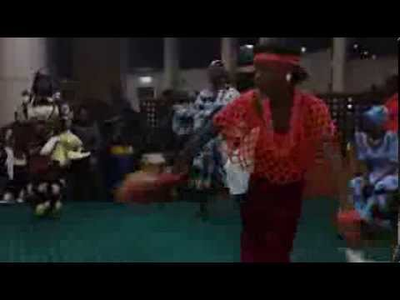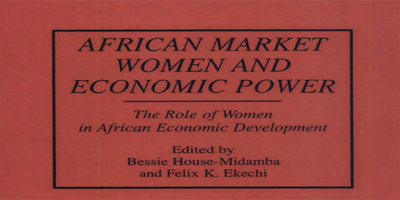It is time for South Africa to overhaul its foreign policy.
International relations need not be a zero-sum game. Given our economic realities, South Africa should aspire to greater balance in its relations with its trade and investment partners. Like other medium-sized countries, we need to work towards an equitable, rules-based world that does not depend on the United States of America (USA) or China as global behemoths, but derives its legitimacy (and order) from norms and institutions that apply equally to all.
Nelson Mandela brought moral authority to South Africa as a global leader on issues like human rights and the rule of law. This set the stage for Thabo Mbeki to pursue his South-South and Africanist agendas. Whereas Mandela argued from principle, Mbeki was the technocrat. Under him, our policy orientation developed into a balancing act that some described as ‘insurrection from within’.
Mbeki acknowledged that the global order was heavily skewed against the developing world. He was, however, aware of the extent to which the country had become deeply integrated into the Western-dominated global order through its open and internationalised economy.
With President Jacob Zuma, things changed. Instead of a foreign policy run tightly from the Union Buildings, the renamed Department of International Relations and Cooperation (DIRCO) was given significant leeway to pursue two priorities: membership of the BRIC group – consisting of Brazil, Russia, India and China – and securing a permanent seat on the United Nations (UN) Security Council. For the rest, it was generally about not pursuing the Mbeki line.
In recent years, domestic challenges such as social discord, xenophobic riots and inchoate policies – such as on migration and tourism – have started to negatively impact our regional and international standing; as have issues around Zuma’s decisions and personal life.
It is unclear which developments led to the decision by the BRIC group to invite South Africa to attend the third BRIC Summit in Sanya, China in 2011. However, membership of BRICS, on top of its existing membership of the G20, is the most important foreign policy achievement of the Zuma administration. It catapulted South Africa into the big league where the country rubs shoulders with the purported alternative club of global leadership.
Whereas South African economic relations with Russia and Brazil are limited, China became South Africa’s largest trading partner in 2010 and the relations continue to expand. Last year the two countries did business to the value of R262 billion.
This development, though welcome, has largely occurred on the back of exports of commodities to China, and at considerable expense to South Africa’s manufacturing sector. In a belated effort to counter these trends, South Africa has sought to harness its BRIC preoccupation by trying to persuade the other BRIC countries to invest in African infrastructure. Once established, the BRICS or New Development Bank would be the main conduit for that policy, though the weakness of the South African economy is impacting negatively on perceptions of South Africa as a growth pole.
Chinese trade and investment in Africa have been a huge boon to the continent. The dilemma for South Africa as member of BRICS, however, is that it appears to be upping its political rhetoric to compensate for a lack of economic gravitas.
Joining BRICS led to important changes in behaviour, and South Africa has been propounding a world view closely resembling that of Russia and – to lesser extent – China. Leaving the Dalai Lama aside, these have been most evident in South Africa’s voting and pronouncements at the UN Human Rights Council, its lack of leadership on human rights in Africa, its actions to circumv
ent its legal obligations on the Rome Statute (of the International Criminal Court) and South Africa’s determined silence on the Russian occupation of the Crimea, its invasions of Georgia and Ukraine and gross human rights violations in Syria.
Pretoria shares Moscow and Beijing’s aversion to Western militar
y interventions. But whereas Russia and China both have a fundamental concern – to avoid similar developments at home – South Africa’s views are more pragmatic, taking their recent cue from the chaos that followed intervention in Iraq, Libya and elsewhere.
Global power is shifting, but these changes take time. We are most likely coming to an end of more than two centuries of Western hegemony as power and influence move eastward. The stock of wealth and influence that first Great Britain and then its successor, the USA, built up over that period will, however, take some time to fade. The South African economy has not decoupled from the West. Trade and investment patterns diverge, in fact, with 78% of South Africa’s foreign investment stock being from the European Union (EU), compared to the 4% from China.
Collectively the USA and the EU will remain important globally, whereas China must still complete its transition to greater political inclusion with potentially unsettling outcomes. Although Russia has little to offer South Africa in trade or politics – the presidency seems intent on paying for its BRICS membership with a nuclear energy procurement deal from that country, possibly also including China into the mix.
At the other end of the foreign policy spectrum is our allegiance, funding and support of countries such as Cuba and Venezuela. Cuba played an important role in Africa during the 1980s, yet South African largesse towards the island state serves no purpose when viewed through an economic or indeed foreign policy perspective.
Read more: allAfrica by By Jakkie Cilliers, Head, African Futures and Innovation Section, Institute for Security Studies


